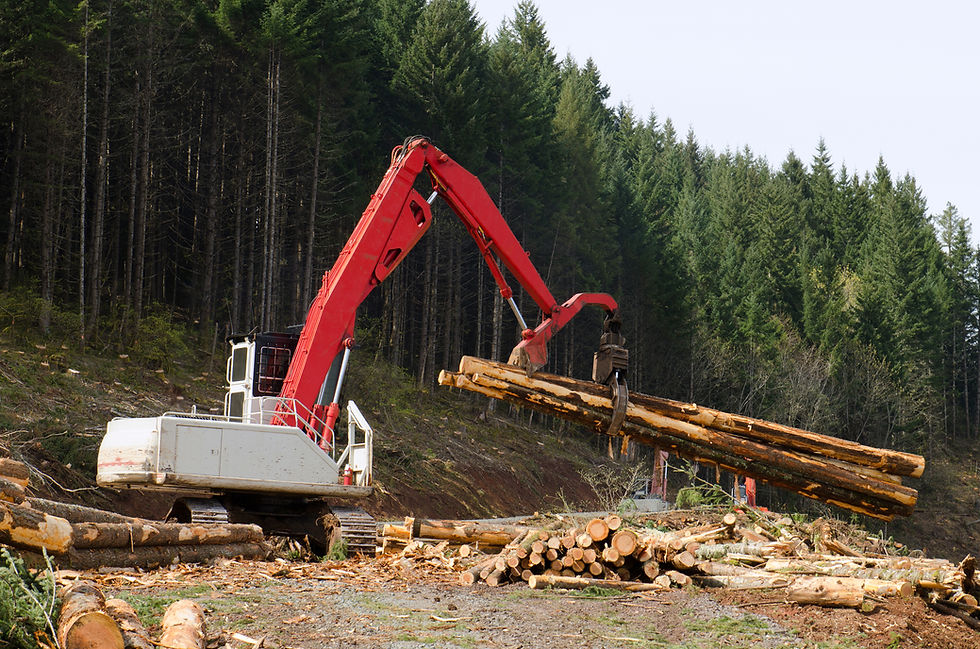The Sustainability of Firewood as a Heating Solution
- The Firewood Company

- Feb 14, 2024
- 3 min read

In the quest for sustainable living, individuals and communities are turning to renewable energy sources to meet their heating needs. Amidst this shift, firewood emerges as a timeless and eco-friendly option, offering a huge number of benefits compared to traditional fossil fuels. The Firewood Company investigates the world of firewood and explore why it stands as a sustainable heating solution, with its lower carbon footprint and potential cost savings.
Let’s be honest, sometimes non-firewood folk are quick to jump to the conclusion that burning firewood is not good for the environment. It’s easy to envision plumes of smoke billowing from chimneys around the globe in a 1940s scene of smoke and pollution. However, today this can’t be further from the truth. Compared to other heating sources firewood comes out on top in terms of being an eco-friendly mode of heating. Fireplaces are also much more efficient and produce much less smoke than their ancestors and when paired with sustainable growing practices burning firewood is a much more environmentally friendly option than many other alternatives.
Renewable and Abundant
At its core, firewood represents a renewable resource that is abundant in many parts of the world. Unlike finite fossil fuels such as coal, oil, and natural gas, which take millions of years to form, firewood is readily available from sustainably managed forests. Trees, the primary source of firewood, can be replanted and regrown, making it a perpetual source of energy when managed responsibly.
Lower Carbon Footprint
One of the most compelling arguments for using firewood as a heating source lies in its significantly lower carbon footprint compared to fossil fuels. When burned, firewood releases carbon dioxide (CO2) into the atmosphere. However, this CO2 is part of the natural carbon cycle, as trees absorb CO2 during their growth phase. As long as new trees are planted to replace those harvested for firewood, the process remains carbon-neutral.
In contrast, fossil fuels introduce carbon into the atmosphere that has been sequestered for millions of years, contributing to the greenhouse effect and climate change. By opting for firewood, individuals can actively reduce their carbon emissions and minimise their environmental impact.
Local and Self-Sufficient
Using firewood for heating promotes local economies and self-sufficiency. Unlike fossil fuels that often require long-distance transportation, firewood is typically sourced locally or regionally, reducing the carbon emissions associated with transportation. Additionally, investing in firewood supports local forestry industries and encourages sustainable land management practices.
Moreover, relying on firewood empowers individuals to take control of their heating needs. With proper planning and preparation, households can stockpile firewood during the warmer months, ensuring a readily available heat source during the colder seasons. This self-sufficiency fosters resilience in the face of potential disruptions to energy supply chains.
Firewood Cost-Effective Heating Solution
Beyond its environmental benefits, firewood offers potential cost savings for consumers. While the initial investment in a wood-burning stove or fireplace insert may be higher than traditional heating systems, the long-term savings can be substantial. Firewood is often more affordable than fossil fuels, especially in regions where it is abundant.
Moreover, utilising firewood can provide insulation against fluctuating energy prices. Unlike fossil fuels, which are subject to market volatility and geopolitical factors, the cost of firewood remains relatively stable, offering financial predictability for households.
Sustainable Harvesting Practices
To ensure the sustainability of firewood as a heating source, it is essential to prioritise responsible harvesting practices. Sustainable forestry management involves selectively harvesting trees, maintaining biodiversity, and preserving ecosystem integrity. By adhering to these practices, individuals can minimize the ecological impact of firewood harvesting and promote healthy forest ecosystems.
Furthermore, utilising wood from sources such as reclaimed or recycled lumber can further enhance the sustainability of firewood as a heating solution. By repurposing wood that would otherwise go to waste, individuals can reduce pressure on natural forests and contribute to circular economy principles.
Firewood stands as a sustainable heating solution that offers numerous environmental, economic, and social benefits. From its renewable nature and lower carbon footprint to its potential cost savings and support for local economies, firewood embodies the principles of sustainability in heating. By embracing firewood as a viable alternative to fossil fuels, individuals can play a part in mitigating climate change and fostering a more resilient and environmentally conscious future.
The Firewood Company is proud to source their local firewood from sustainable logging practices to ensure a positive impact on our environment. Being locally owned and operated, and servicing the Marlborough region they are dedicated to providing well-seasoned and sustainable wood to locals. Keeping locals warm and snug during the winter why also considering the health of our environment.




Comments